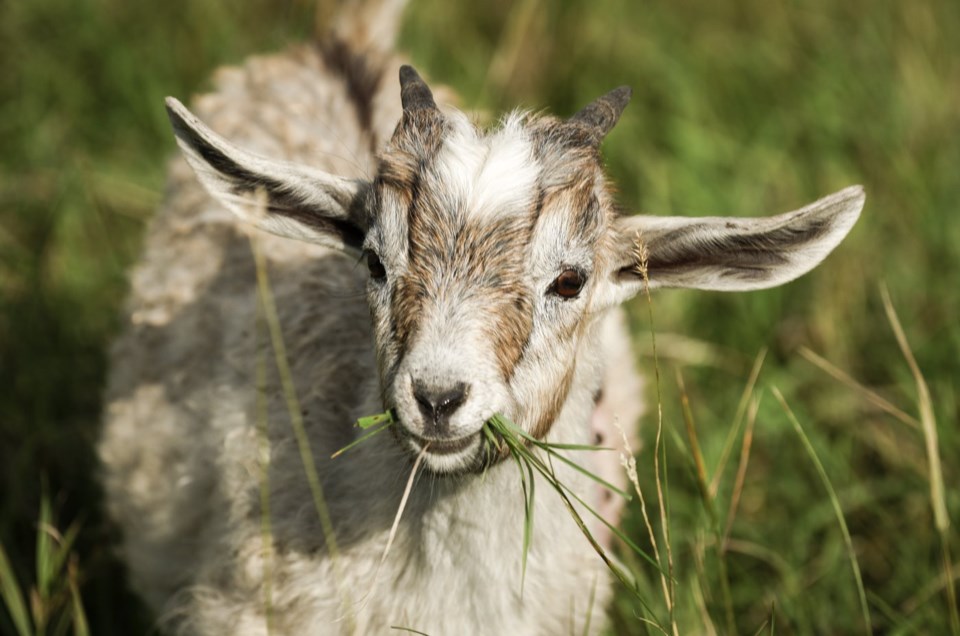CALGARY — A motivated herd of lean biting machines was back on duty Wednesday, cleaning up an overgrown park in northwest Calgary.
About 800 goats are grazing 58 hectares of Nose Hill Park over the next two weeks, gnawing on excess vegetation and reducing the risk of fire and promoting biodiversity.
The city's goat grazing project, which began as a pilot in 2016, has grown as much as the grass and the weeds.
Jeannette Hall, the project's chief goatherd, says the animals are more cost-effective than mowing or applying chemicals.
"On average they eat about eight pounds (three kilograms) each a day, but that's based off of a six-hour day. We are often working 12-hour days," said Hall, also the owner of Baah'D Plant Management & Reclamation.
"They prefer broad-leafed plants, weeds, seeds and bark, over the grasses. Generally, the native grasses they leave alone, and this herd has been conditioned to just eat weeds."
Their droppings fertilize the soil and their hoofs help till and aerate the ground.
Their digestive system also prevents seeds of noxious plants from germinating, said Andrew Phelps, a park ecologist.
"The goats are really beneficial ... they come in and ingest those weed seeds, and their stomach acids actually neutralize a seed coating, which renders those seeds useless," he said.
"They can't germinate and so it really takes them out of the population."
Staff monitor the animals 24 hours a day. Trained herding dogs and horses also help keep the munchers in line.
Hall said it's a lot of work.
"It's very important to maintain. We're not just farmers coming in. We're not just people with goats," she said.
"Goats aren't magical unicorns that kiss the ground and make the brush and the weeds go away. There's an actual strategy in how we are actually utilizing them."
This report by The Canadian Press was first published Aug. 13, 2025.
Bill Graveland, The Canadian Press




